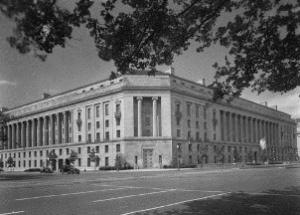A Washington Post story by Sari Horwitz reports that federal officials don't know what they are going to do about marijuana legalization in Colorado and Washington:
"I really don't know what we're going to do," said one high-ranking law enforcement official involved in the decision who was not authorized to speak publicly.

"It was a battleground state," said [another] administration official, who spoke on the condition of anonymity because he was not authorized to talk publicly
.
Horwitz's otherwise good article repeated the same fallacy we have seen crop up in other news reports of late, the idea that states can't do this because of federal law, a fallacy that I predicted here and have already noted here. The article states:
The most likely outcome will be that the Justice Department will prevent the laws from going into effect by announcing that federal law preempts the state initiatives, which would make marijuana legal for recreational use, law enforcement sources said.
Perhaps it's just a typo, and I don't know what the sources told Mr. Horwitz, but no matter what the legal and practical outcome of all of this, it is not the case that DOJ can preempt a state's law by making an announcement about. They can ask a court to preempt the laws, and then the court will decide. Significant legal precedent indicates that Congress cannot force states to criminalize conduct they don't want to criminalize, anymore more than states can force Congress to lift such criminalization -- as I've pointed out, in 16 years of state medical marijuana laws, no federal prosecutor has ever tried to do so. Maybe they'll try now, and if so we'll see what the Supreme Court's inconsistent conservatives say and what the liberals say. But they've had plenty of incentive to go that route already, and for some reason haven't.
Not that the feds can't make a fight of things. As the medical marijuana battles show, they have ways to interfere. They can send vaguely threatening letters, implying without directly stating that state employees would be violating federal law by implementing regulations for marijuana, as US Attorneys in most medical marijuana jurisdictions have done. That could scare the governors, who could seek delays implementing the initiatives, which in turn would have to be addressed in court. The IRS could move against the new businesses, auditing and penalizing them under a tax rule that disallows most expense deductions for illegal enterprises. (The law bizarrely allows dispensaries to deduct the cost of marijuana itself, but not other things like payroll or rent.) They can make it hard for marijuana businesses to maintain relationships with banks. And of course they can raid any marijuana store that they choose to.
But none of that is the same as preempting the laws themselves. And none of it would stop people from possession marijuana whenever they want, legally under the states' laws, or in Colorado from growing it. This needs to be repeated as often as possible: Colorado and Washington's marijuana laws are different from federal marijuana law, but that doesn't mean they conflict with it; and not every conflict is legally impermissible. If federal law just preempted state law in that way, 18 states would not have medical marijuana today.
Add new comment